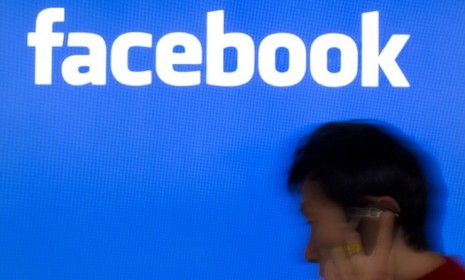Is there a 'black market' for Facebook stock?
Investors are racing to get a piece of Facebook before it launches its feverishly anticipated IPO, and some are getting caught up in scams

A free daily email with the biggest news stories of the day – and the best features from TheWeek.com
You are now subscribed
Your newsletter sign-up was successful
Facebook has the hottest stock around — and it's not even public yet. Shares of the social network are highly coveted in the booming "secondary" market, "an illiquid, opaque bazaar populated by shady characters" that bears all the hallmarks of a "black market," says Mark Gongloff at The Huffington Post. Through these less-than-upstanding transactions, investors can buy into privately held companies before they go public. Because Facebook shares are expected to soar in value once the company launches its IPO, people are clamoring for them. So it's no surprise that some overzealous traders are going too far — already, the SEC has brought charges against three parties for illicit pre-IPO trading. Here, a guide to the Facebook frenzy:
Can I buy private shares in Facebook?
It won't be easy. Private shares are primarily sold by "Facebook employees and early-stage investors through a network of brokers that has sprung up in the past few years," says The Wall Street Journal. "Everybody is crazed with Facebook," but "shares are concentrated with a few credible sources," Judith Feder, a broker, tells the Journal. It's all about who you know.
The Week
Escape your echo chamber. Get the facts behind the news, plus analysis from multiple perspectives.

Sign up for The Week's Free Newsletters
From our morning news briefing to a weekly Good News Newsletter, get the best of The Week delivered directly to your inbox.
From our morning news briefing to a weekly Good News Newsletter, get the best of The Week delivered directly to your inbox.
How much do they cost?
Facebook shares are selling for about $40 a pop, valuing the company at around $100 billion, says the Journal. Rabid demand for Facebook is the primary catalyst for the secondary market's expansion: About $9.3 billion in shares of private companies was traded in 2011, up "four-fold in two years," says Reuters. Other private tech companies, like Twitter and Zynga, are also hot commodities.
In what way is it like a black market?
The secondary market is far less regulated than the regular stock market. Since the companies are still private, brokers often don't even have basic information about them, such as financial statements, or whether the company has trademark claims against it. "There is a nearly infinite variety of things that could go wrong with a private company that you don't know anything about," Robert Robbins, a professional investor, tells Reuters. And the secondary market, by its very nature, tends to invite sketchy brokerages.
A free daily email with the biggest news stories of the day – and the best features from TheWeek.com
How is the SEC cracking down on scams?
In one case, the SEC is accusing the brokerage Felix Investments of offering stakes in a "Facebook fund," even though "Felix did not have any Facebook shares to sell," says Forbes. Felix reportedly promoted the fund "through mass mailings" to more than 1,000 people. Such funds, or "special purpose vehicles," have proliferated in recent years, and experts say they are prime avenues for fraud, since investors only hold a stake in the fund and not Facebook itself.
What about Congress?
Congress is considering legislation to make it easier for companies to sell private shares. The SEC has warned that the bill could dramatically increase the risk of fraud and scare off investors, but it looks like the secondary market could get "even boom-ier," says Gongloff.
Sources: Forbes, The Huffington Post, Reuters, The Wall Street Journal (2)
-
 Movies to watch in February
Movies to watch in Februarythe week recommends Time travelers, multiverse hoppers and an Iraqi parable highlight this month’s offerings during the deep of winter
-
 ICE’s facial scanning is the tip of the surveillance iceberg
ICE’s facial scanning is the tip of the surveillance icebergIN THE SPOTLIGHT Federal troops are increasingly turning to high-tech tracking tools that push the boundaries of personal privacy
-
 ‘My donation felt like a rejection of the day’s politics’
‘My donation felt like a rejection of the day’s politics’Instant Opinion Opinion, comment and editorials of the day